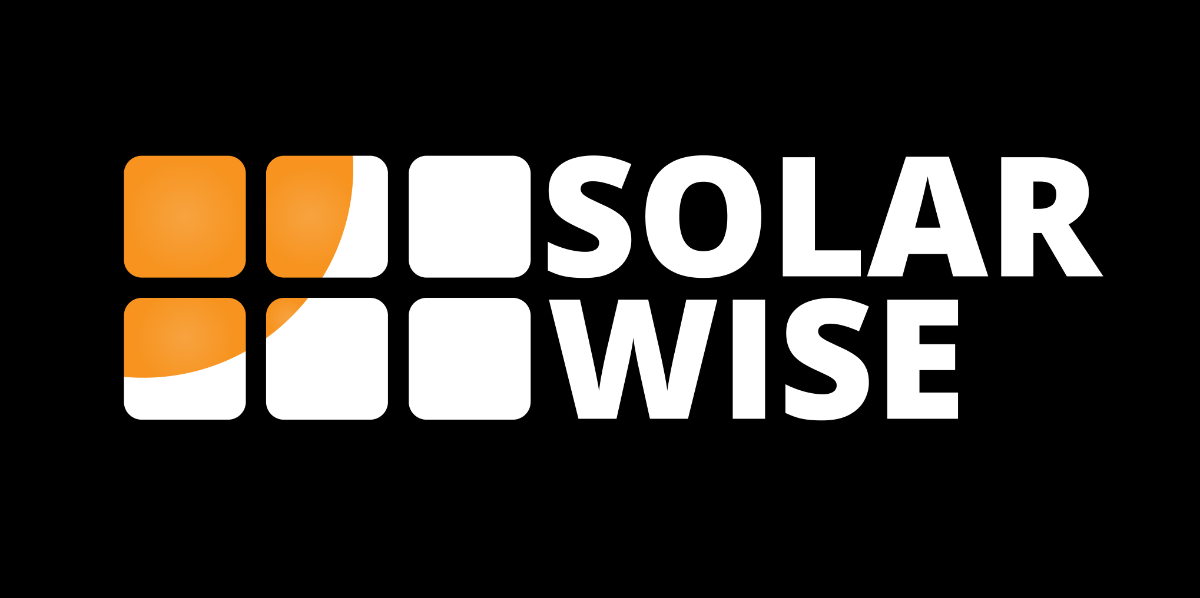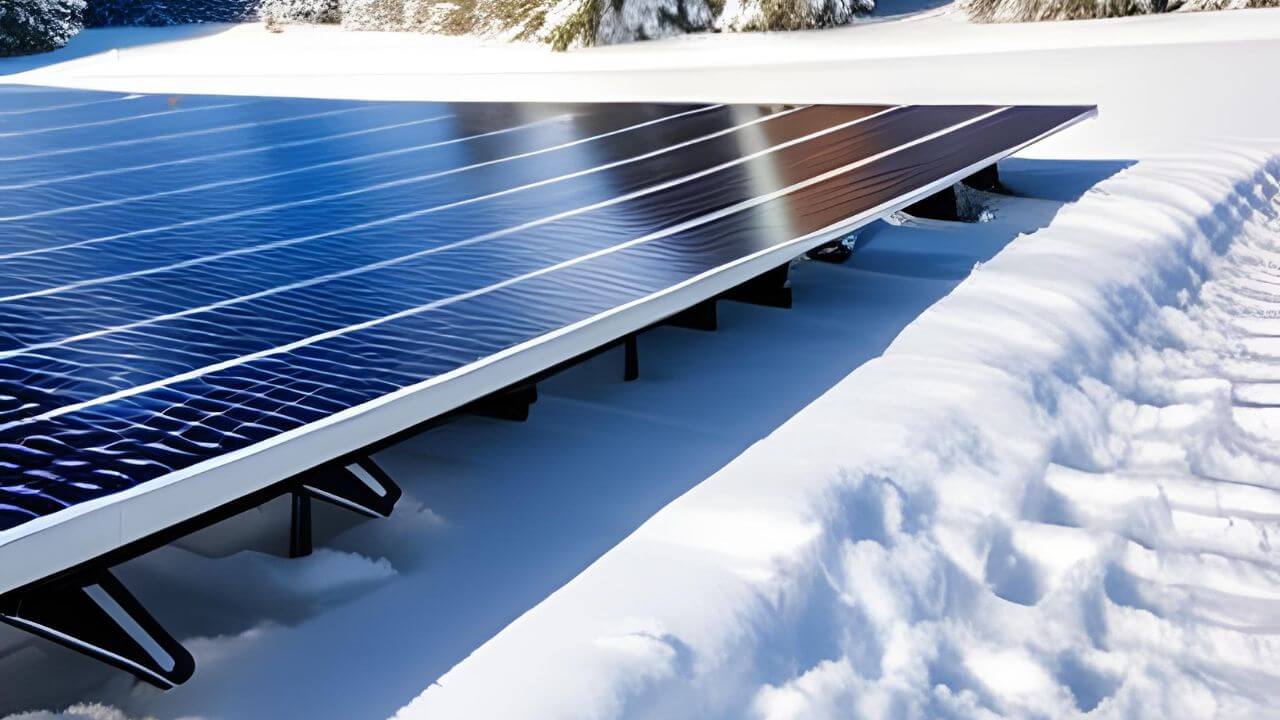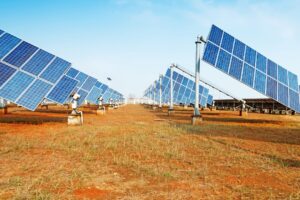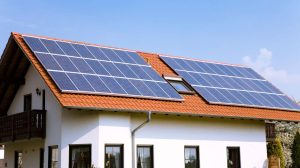A solar power system’s efficacy and comprehensive functioning hinge on multiple elements cohesively operating in tandem. In this arrangement, the solar inverter stands as a pivotal component. But what precisely constitutes a solar inverter, and what elevates its significance?
Understanding the Solar Inverter
A solar inverter primarily converts the direct current (DC) electricity harvested by the solar panels into alternating current (AC) electricity, rendering it fit for domestic appliances and the electrical network. It acts as the conduit linking the solar panels and your residence, guaranteeing the generated power is suited for your gadgets.
There are three main types of solar inverters:
- String inverters are solar inverters commonly used in residential and small commercial systems. They connect multiple solar panels in a “string,” allowing them to convert the combined DC output to AC power. This straightforward design makes them cost-effective and simple to install. However, their performance may be affected if one panel in the string experiences shading or reduced output, impacting the entire string.
- Microinverters are small devices installed on each solar panel in a system. They convert the panel’s DC electricity to AC at the source, improving efficiency and performance. This setup is conducive when some panels experience shading or different sunlight angles, allowing each panel to work independently. Microinverters make expanding the system and monitoring individual panel performance easier, providing a flexible and user-friendly solution.
- Power optimizers are a smart solution combining the best of both string and microinverters. They’re attached to each solar panel and work to optimize the panel’s DC output before sending it to a central inverter for AC conversion. This approach ensures better performance in various conditions, like shading, and allows for easier system expansion. Overall, power optimizers help enhance your solar system’s efficiency while offering flexibility.

Credit: palmetto.com
Function of Solar Inverters
Converting DC to AC
Converting DC to AC is a key function of solar inverters. Solar panels produce direct (DC) electricity, but our homes and appliances use alternating (AC) power. The inverter acts like a translator, changing the solar panel’s DC output into AC power, making it compatible with our everyday electrical needs. This conversion ensures our solar energy can be used efficiently and effectively.
Maximizing power output
Maximizing power output is about getting the most energy possible from solar panels. Solar inverters use a smart technique called maximum power point tracking (MPPT) to find the sweet spot where panels generate the most power. It’s like fine-tuning a radio to get the clearest signal. This way, even when sunlight or temperature changes, your solar system keeps working efficiently, providing you with the maximum energy it can produce.
System monitoring and communication
Solar inverters with system monitoring and communication features allow you to monitor your solar power system’s performance. These smart inverters connect to the internet and share real-time data about energy production, efficiency, and potential issues. This user-friendly information helps you stay informed, ensures your system is working optimally, and makes troubleshooting a breeze, all through a simple app or web platform.
Importance of Solar Inverters
Efficiency
The efficiency of a solar inverter depicts its ability to transform the DC power produced by solar panels into AC power while incurring minimal losses. Essentially, the higher the inverter’s efficiency, the more power generated from your panels will be utilized in your residence or establishment. Top-grade solar inverters often boast efficiency percentages of 95% or above, helping you harness the maximum potential of your solar energy setup and minimizing the squandering of precious solar energy.
Reliability
The inverter operates much like the central organ of the system, circulating energy across your residence or business. A trustworthy inverter diminishes the likelihood of system breakdowns and maintains the seamless operation of your solar setup, supplying steady, green energy for many years ahead.
Safety
An inverter holds a critical role in your solar arrangement. It is equipped with inherent safety measures, including anti-islanding protection, which stops the inverter from returning power to the grid during a power cut. This procedure safeguards utility workers who might be engaged in grid repairs. Moreover, inverters have the capability to identify possible problems within your setup, such as electrical disparities or overheating, and can deactivate the system to avert potential damages or risks.
Integration with Smart Home and Business Networks
Solar inverters in this digital era can effortlessly merge with intelligent home and business networks. This allows them to interact with other gadgets and systems, offering real-time energy creation and usage statistics, thus facilitating intelligent energy management approaches.
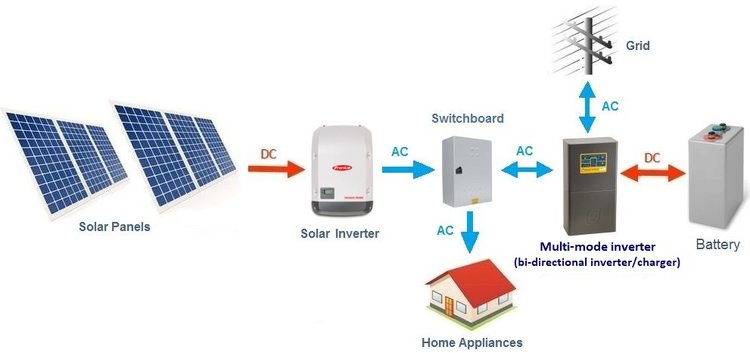
Credit: cleanenergyreviews.info
How to Choose the Right Solar Inverter
Finding the Right Inverter Size to Match Your Solar Array
Selecting the correct solar inverter is incredibly vital! It’s akin to pairing a car engine with the appropriate horsepower for stellar performance. Hence, it’s crucial to contemplate the size or capacity of the inverter and align it with your solar array. If the inverter is undersized for the solar panels you possess, it will be unable to accommodate the energy generated by them, which isn’t ideal. Conversely, opting for a too-large inverter will result in unnecessary expenditure on a unit that isn’t fully utilized, which isn’t sensible either! The strategy here is to examine both the aggregate wattage of your solar panels and the output rating of the inverter to guarantee a flawless match. This approach ensures a solar setup that operates harmoniously!
Inverter features
When choosing a solar inverter, consider the most important features. For example, look for inverters with built-in monitoring systems, allowing you to track your solar system’s performance easily. Additionally, some inverters offer smart features, such as shade optimization and rapid shutdown, which improve system efficiency and safety. Ultimately, select an inverter that fits your needs and enhances your solar power’s overall performance and user experience system.
Warranty and Assistance
A robust warranty and dependable customer assistance is critical when selecting a solar inverter. A more extended warranty duration, generally 10-15 years, reflects the manufacturer’s faith in the product’s longevity. Furthermore, an agile customer service facility can swiftly address any issues or queries that might occur during the inverter’s life cycle, facilitating the uninterrupted functioning of your solar system.
Conclusion
In conclusion, solar inverters are paramount in extracting the optimal output from your solar energy system. They are responsible for converting the electricity generated by your solar panels into usable AC power, essential to power your home’s lights and appliances. But their role doesn’t end here! They also ensure you harness the maximum power possible, and with modern technology features, they can provide insights into the performance of your system.
